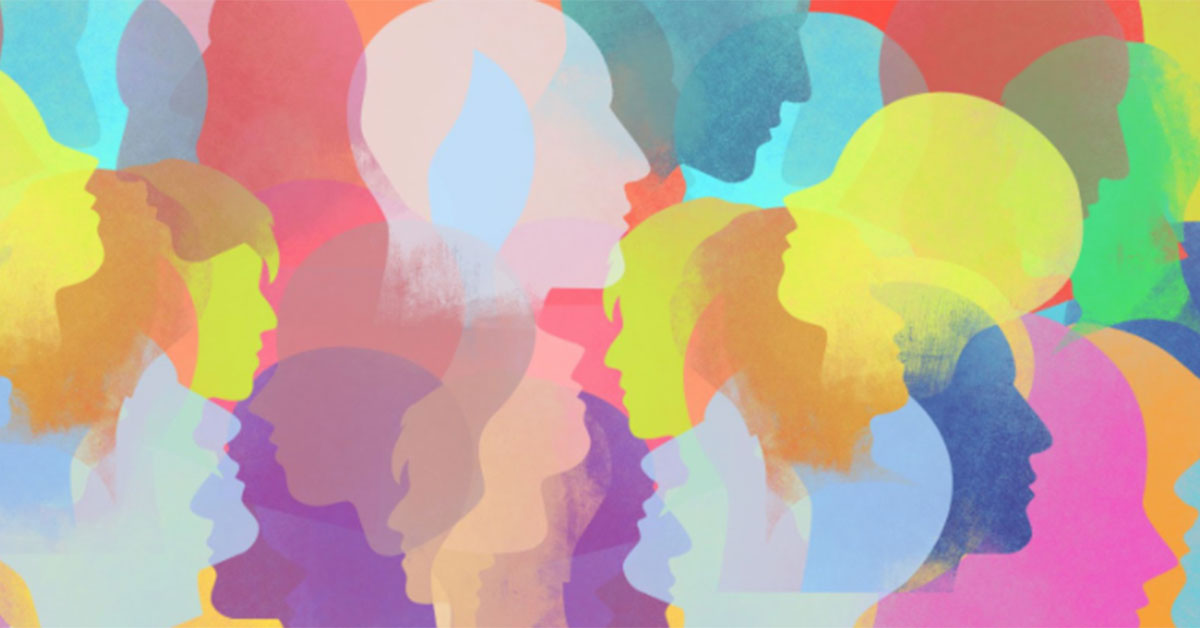NEW Online Prerequisite Courses in Anthropology, Microeconomics, Sociology
 UNE Online is pleased to announce the launch of three new prerequisite courses: Cultural Anthropology, Introduction to Microeconomics, and Introduction to Sociology. These courses are now available for registration.
UNE Online is pleased to announce the launch of three new prerequisite courses: Cultural Anthropology, Introduction to Microeconomics, and Introduction to Sociology. These courses are now available for registration.
Our Science Prerequisites for Health Professions (SPHP) are 100% online courses that are popular with students who may need one or two courses to fill a gap in their transcript. These courses can also be utilized for students either currently working in the field of healthcare or for career changers, such as people looking to get into a deeper or expanded healthcare role.
To date, SPHP students who have successfully completed their prerequisite courses often go on to apply to various graduate programs including Physician Assistant (PA), MD/DO, Nursing, Physical or Occupational Therapy, Veterinary, or other health-related fields.
In response to current student demand and our vision to expand UNE’s prerequisite offerings outside of science and math topics, we have developed three new online social science courses:
Cultural Anthropology – ANTH 1011

Example Project: American Eugenics Movement
Most Americans know little to nothing about the American Eugenics Movement and how it once influenced the passage of discriminatory policies and laws, like the anti-miscegenation laws that prevented interracial marriages, and initiated forced sterilizations based upon questionable “science. In addition to watching a video on the subject and exploring some of the writings of Edwin Black, international investigative author of books on the Holocaust and Eugenics, students will explore the “Image Archive of the American Eugenics Movement” curated by the Dolan DNA Learning Center, and much more.
ANTH 1011 is a three-credit anthropology course that introduces you to the study of human cultural patterns and learned behavior.
Students will explore the discipline through weekly topics that include linguistics and religion, social and political organization, race and ethnicity, culture and personality, culture change and applied anthropology.
The study of cultural anthropology helps to provide students with a more open and sensitive attitude towards persons of other cultures and ethnic backgrounds by exploring commonalities of belief and life intention and reflecting on the role of enculturation in shaping the lives of societies and individuals.
Cultural Anthropology Course Outcomes
- Identify the fundamental concepts of cultural anthropology and explain their interconnectedness to the four-field discipline of anthropology.
- Assess how anthropologists apply the concepts and methodologies of the field to real-world problems through the use of case studies from medical, agricultural and other applied anthropological subfields.
- Examine anthropological ideas regarding the origins, causes and effects of colonialism and cultural imperialism in the development of globalization and our current world system.
- Investigate the field of linguistics including the subfields of historical linguistics, descriptive linguistics, and ethnosemantics.
- Describe the association of anthropology with early constructions of racial theory, the rise of American eugenics, and current disciplinary understandings of ethnicity and race.
- Apply ethnographic fieldwork and anthropological theory.
- Generate a more open and sensitive attitude towards persons of other cultures and ethnic backgrounds by exploring commonalities of belief and life intention and reflecting on the role of enculturation in shaping the lives of societies and individuals.
Interested in Taking Cultural Anthropology? Click here to register
Introduction to Microeconomics – ECON 1010

Example Project: Current Economic Concepts in Media
Students will utilize media such as news articles to analyze economic concepts and provide summaries in a way that is easily understood by someone unfamiliar with microeconomics. Topics include supply, demand, and equilibrium, opportunity costs, production theory, consumer theory, the elasticity of demand, and a government policy such as taxation, regulation, subsidies, price floors, or price ceilings.
ECON 1010 is a three-credit microeconomics course that provides a thorough introduction to microeconomic theory. This course begins with an analysis of opportunity costs and trade offs.
These concepts are then used as the foundation for studying producer and consumer behavior. Next, consumer and producer behavior theory are combined and used as the building blocks for an analysis of supply, demand, consumer surplus, producer surplus, and elasticity.
The course concludes with an overview of the four market structures commonly studied in microeconomics and how they rely on the concepts and theories that have provided the foundation for the course.
Introduction to Microeconomics Course Outcomes
- Examine the role economists play in society and how they use critical thinking skills
- Analyze the term microeconomics and the components of the economic system: demand, supply, equilibrium, and consumption
- Evaluate the factors of production, market structure, resource allocation, and regulation
- Analyze household behavior and consumer choice
- Summarize the behavior of profit maximizing firms and the production process
- Outline the production and distribution of resources, goods, and services
- Debate the concept of scarcity and opportunity cost with the concept of marginal analysis to evaluate trade-offs and make decisions
- Analyze how markets work to allocate resources and the optimal individual decision-making that underlies market outcomes
- Identify various market structures and their implications for resource allocation
Interested in Taking Introduction to Microeconomics? Click here to register
Introduction to Sociology – SOCI 1010

Example Project: Socioautobiography
Students will create their very own socioautobiography that dives into their own ethnicity, culture, and socioeconomic status. Students will also examine deviance and conformity and how both play a role in their own lives.
SOCI 1010 is a three-credit sociology course that introduces students to the three main sociological perspectives: sociological imagination, social construction, and how to think like a sociologist.
Topics such as deviance, social control, culture, stratification, socialization, social movements, and other social issues that society faces are explored and discussed.
This course will require students to think critically about human actions and interactions. Students will gain an understanding on how people’s lives are shaped by society.
Introduction to Sociology Course Outcomes
- Using sociological research, describe sociology
- Describe how socialization impacts human behavior.
- Apply the sociological imagination to their own lives and to a public problem.
- Analyze the impact of the five major social institutions on society and themselves.
- Analyze current events using the three major sociological theoretical perspectives.
- Describe social construction.
- Examine the racial, gender, and economic diversity that exists in the U.S. and how these are used to classify people.
- Assess present and possible future effects of social change on societies and their own basic values.
Interested in Taking Introduction to Sociology? Click here to register
Complete at your own pace within 16 weeks
Students typically complete our prerequisite courses in about 16 weeks. However, our online courses are self-paced, so students are able to complete their course in fewer than 16 weeks if they so choose.
Courses begin every 2-3 weeks
SPHP classes begin the first and third Wednesdays of the month, including these new online science courses. You must be registered for your class by 12:00 noon EST the Monday before the class starts. You have 16 weeks from your official start date to complete your course. Click here for the UNE academic calendar, which also includes SPHP course start dates.
24/7 online registration
Enroll in any of our SPHP courses, including our five new humanities courses, through the SPHP self-service registration portal.